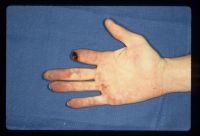Clinical Examples: Delayed Amputation for Vascular Insufficiency
| Ischemic gangrene of the
hand and fingers is usually an unwanted addition to an already
complicated medical condition, presenting both psychological and
physical issues. The goal is to achieve amputation healing with the
fewest complications along the way. A major problem is that adjacent to
the areas of clear gangrene is a zone if indeterminate viability. If
undisturbed, this zone may have enough perfusion to heal, but if
stressed by infection or surgery, it may die. When to amputate? Where
to plan incisions which will heal uneventfully? |
| Click on each image for a larger picture |
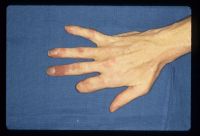
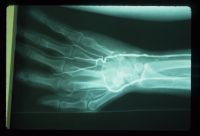
| Case 2. This patient developed
ischemia of the radial aspect of her left hand during a carotid
endarterectomy. These pictures were taken four weeks postop. |
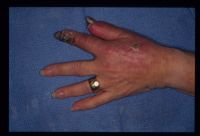
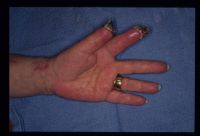
| Imaging demonstrated
nonreconstructible vascular disease. |
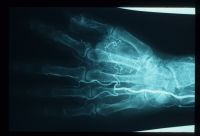
| The wounds were kept clean and dry until demarcation was complete. two months after the initial event, the thumb tip has autoamputated and the first dorsal interosseous muscle has developed ischemic contracture, resulting in a fixed flexion and radial deviation of the index metacarpophalangeal joint. |
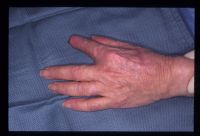
| At this point, the index
amputation was shortened and the first dorsal interosseous muscle
was released by distal tenotomy. Here, one month postop, three months
after the initial event, with full range of motion and wound healing. |
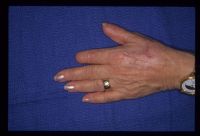
| With this approach, greater
thumb length was preserved than would have been possible with
early amputation. |
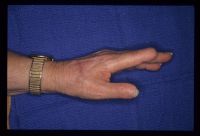
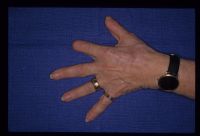
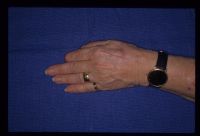
| Case 3. This patient with
nonreconstrutible vascular disease of both hands presented with
multiple ischemic fingertips was managed with local care until
demarcation was complete, allowing uncomplicated amputations with
uneventful healing. |
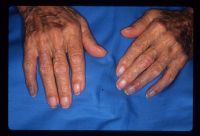
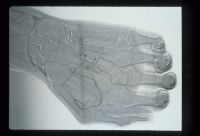
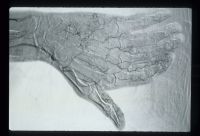
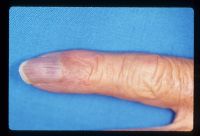
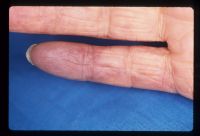
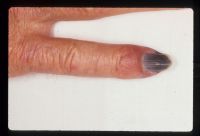
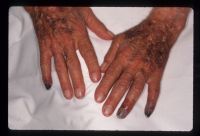
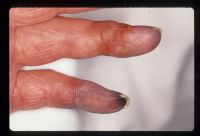
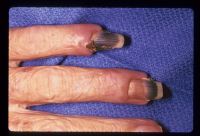
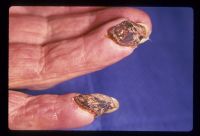
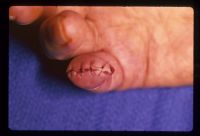
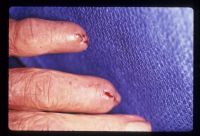
| Final result, three months
after presentation. |
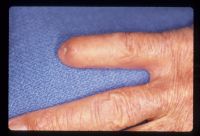
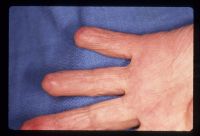
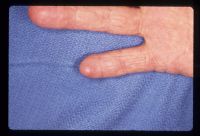
| Search
for... finger ischemic gangrene amputation timing |
Case Examples Index Page | e-Hand home |
